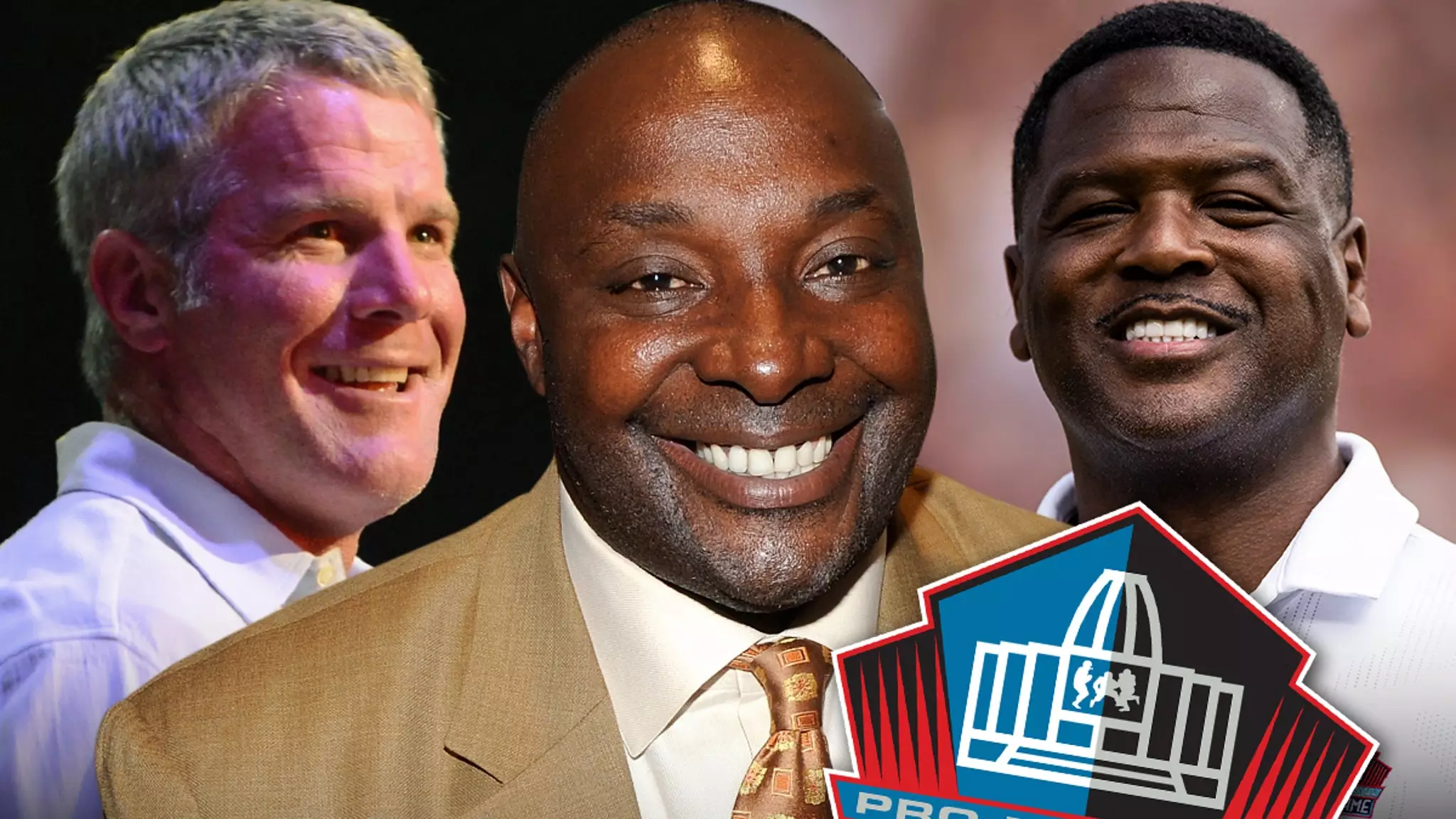This week, significant voices from NFL history have rallied in support of former Green Bay Packers wide receiver Sterling Sharpe, emphasizing his deserving status for enshrinement in the Pro Football Hall of Fame. Notably, two Packers icons, Brett Favre and LeRoy Butler, have publicly voiced their opinions, underscoring the stark reality of Sharpe’s omission from the Hall despite his extraordinary contributions to the game. The passionate defenses presented by these former teammates bring to light not only Sharpe’s significant on-field performance but also the lingering injustice of his current exclusion.
Sterling Sharpe’s tenure in the NFL was formidable, albeit brief, due to injuries that ultimately curtailed his prime. Over the course of only seven seasons, Sharpe amassed impressive statistics: 595 receptions, totaling 8,134 receiving yards and 65 touchdowns. His accomplishments have led to three All-Pro honors and five Pro Bowl selections, but his upper-echelon numbers have been somewhat overshadowed by the timing of his retirement. Such a brilliant yet truncated career poses the question: should the length of a player’s career outweigh the impact they had during the time they played?
One of the most compelling arguments made by Butler is that had Sharpe’s career not been plagued by injuries, he would undeniably be in the conversation for the greatest of all time (G.O.A.T.) among wide receivers. This assertion isn’t made lightly; it encourages a deeper examination of how excellence is defined in professional sports. Would a shorter but superlative career, alongside possessing skill and intellect on par with football’s greatest, warrant a position among the all-time greats? As Butler suggests, the absence of Sharpe’s name in the Hall of Fame becomes even more perplexing when considering what he accomplished in such a limited timeframe.
Brett Favre, who shared the field with Sharpe, characterized him as “unguardable” and “unbelievable,” emphasizing that Sharpe’s remarkable football intelligence often transcended traditional measures of athleticism. In a sport where speed and size are commonly glorified, Sharpe’s cerebral approach to the game positioned him alongside the best. Favre’s statements shed light not just on Sharpe’s abilities, but on the respect he commanded from his peers — an intangible quality that ought to weigh heavily in any Hall of Fame consideration.
Currently, Sterling Sharpe finds himself among five finalists competing for a coveted spot in this year’s Hall of Fame class, intensifying the stakes for both him and the other contenders. Ironically, Sharpe’s former coach, Mike Holmgren, who now finds himself among the other nominees, adds to the narrative of intertwined legacies within the league. With the class of 2025 set to be revealed in February during Super Bowl week, discussions around who truly deserves this honor become even more prominent.
As both Brett Favre and LeRoy Butler have passionately articulated, it is high time for Sterling Sharpe to receive his rightful honor in the Pro Football Hall of Fame. The debate over his candidacy spotlights critical issues surrounding career longevity versus peak performance, ultimately posing a fundamental question: should greatness be measured solely by the length of a player’s career, or should the transcendent skill and impact within that timeframe grant one a place among legends?

